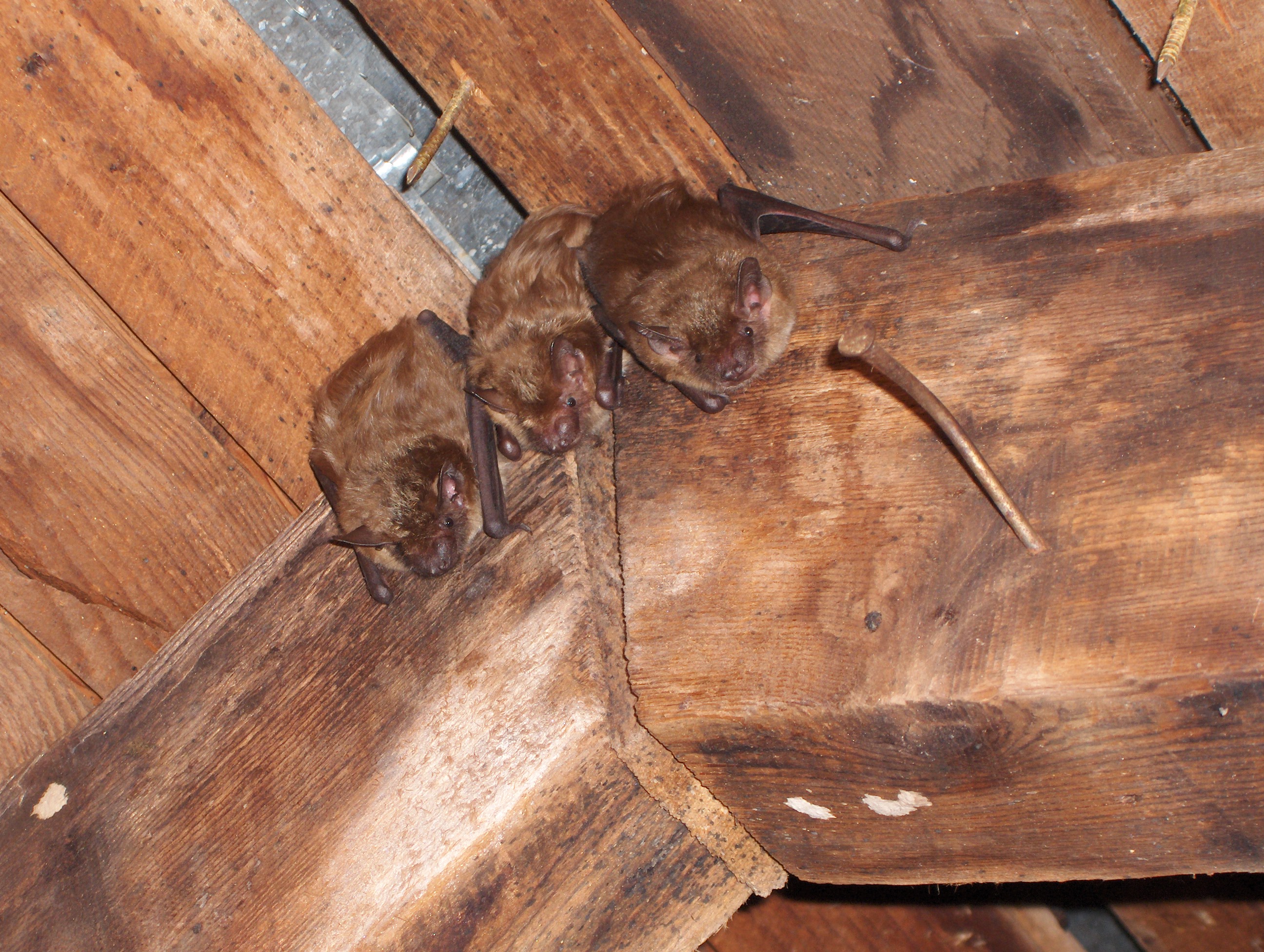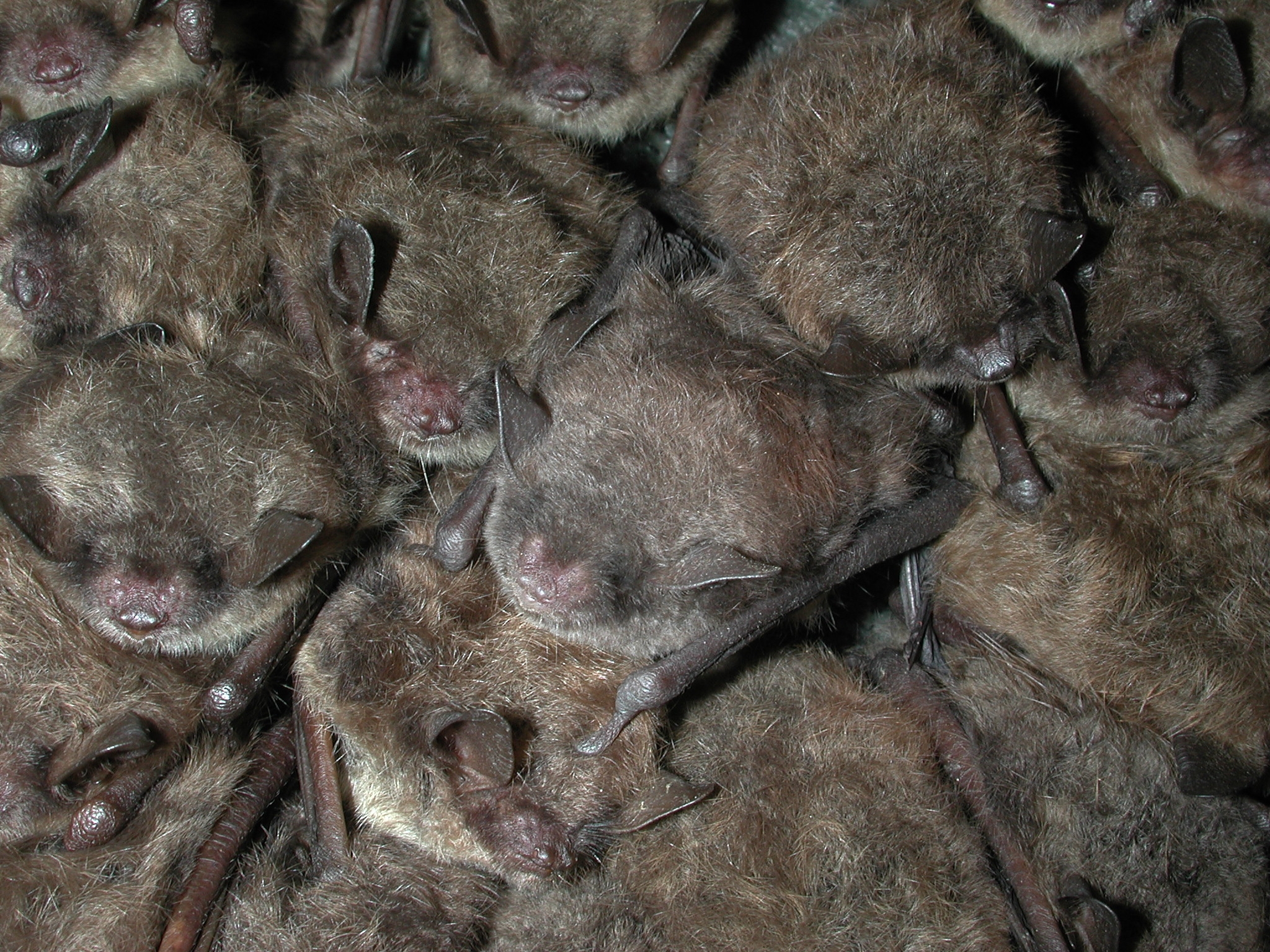Bat
Bats have webbed wings and are our only mammals capable of true flight. Despite their bad reputation and frequent persecution, bats are legally protected mammals that cause only a few problems for people.
Bats can be thought of in two broad categories, those that are colonial and others that are solitary. Colonial bats gather together in colonies and are the ones most often encountered in homes, other buildings, mines, tunnels and caves. Examples of colonial bats include the little brown bat, big brown bat, the northern long-eared bat, and the tricolor bat. Solitary bats, also known as tree bats, typically roost in tree foliage and under tree bark, but occasionally can be found near buildings. Common tree bats include the red bat, silver-haired bat, and hoary bat. This colonial vs. solitary distinction may vary with season. Typically solitary species females may group during the summer in maternity colonies but remain solitary during hibernation. Bats may also form colonies in trees or roost solitarily in attics.
Virtually all bats found in North America are quite small. Their bodies are typically less than 5 inches long, with an 8- to 12-inch wingspan, and a weight of less than ½ ounce. They are important insect-eating mammals that feed at dusk and night.
White-nose syndrome (WNS) is a disease that is killing hibernating bats in eastern North America. Named for a fungus that grows on the faces and exposed skin of hibernating bats, WNS has decimated affected bat populations. Bats affected with WNS do not always have obvious fungal growth, but they may behave strangely within and outside of their hibernacula (caves and mines where bats hibernate during the winter). This strange behavior can lead to an increased risk for contact with humans.
The biggest human conflict with bats occurs when they enter our homes and roost, where they can cause a disease risk to people and pets.
State specific info - Rhode Island - Bat
If you have or suspect that you have been bitten by a bat or any other wild mammal wash the wound with soap and water, seek medical attention immediately and contact the Rhode Island Department of Health at (401) 222-2577.
Any bat that enters a living space where there are people or domestic animals present is a potential candidate for rabies testing. If you cannot conclusively determine that no person or pet has had contact with the bat, the bat should not be released and an attempt should be made to capture the bat for rabies testing. Bats are not aggressive but will bite to defend themselves. Use heavy leather work gloves to capture the bat. Secure the bat preferably in a plastic container with a lid that can be securly sealed. Live bats, in secure containers, are acceptable for testing. Contact the R.I. Department of Health for guidance. It is important that the specimen be in good condition, particularly the head, for accurate results. Carcasses should not be frozen prior to submission.If you are unable or unwilling to attempt to capture the bat yourself contact the local animal control officer, a R.I. licensed Nuisance Wildlife Control Specialist (NWCS): www.dem.ri.gov/programs/fish-wildlife/wildlifehuntered/wildlifemanageme… the DEM's Division of Law Enforcement (401) 222-3070.
Solutions for bat problems
Laws and regulations to be aware of
While we attempt to provide guidance about state and federal regulations pertaining to specific species and control techniques, we do not provide information about local jurisdictions (city, town, county, etc.) where regulations may be more restrictive, especially as it applies to discharge of firearms, transport of animals or use of trapping equipment. Contact your local city or county government to inquire further. No guarantee is made that information (or lack of information) associated with a species or control technique is completely accurate or current. You should become familiar with federal, state and local laws before beginning any wildlife control activities. |





